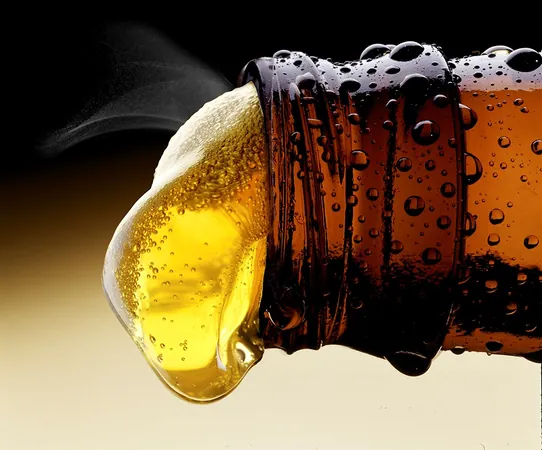
B.C. Pub Slapped with $3,000 Fine for Keeping Intoxicated Patron – Are Other Establishments in Danger?
2025-03-26
Author: Noah
Incident Overview
A Vancouver Island pub has been handed a hefty $3,000 fine by British Columbia's Liquor and Cannabis Regulation Branch after allowing an incapacitated patron to remain on the premises. The incident ignites questions about alcohol management practices in public establishments.
Inspection Findings
In a decision issued on March 19, Branch delegate John Rogers revealed that on November 2, 2024, inspectors visited the Whistle Stop pub in Courtenay. During their inspection, they noticed a female patron exhibiting signs of severe intoxication—she appeared unsteady, had droopy eyes, and was struggling to maintain her composure, ultimately sliding down in her booth.
Eyewitness reports recorded the woman attempting to engage in conversation while appearing disoriented, with her eyes closed and head nodding. Observations recorded by Inspector A noted that the patron was speaking softly and lacked clarity in her communication.
Staff Response and Defense
After an unspecified period, pub staff provided her with a glass of water, but her condition didn’t significantly improve. The inspector’s account detailed how the patron barely managed to lift her head and needed help locating the straw in her water glass. She then returned to resting her head on the booth’s table.
Alarmingly, the inspectors noted that staff members walked past her several times without checking on her condition. When questioned about why she was permitted to remain in the establishment, the bartender cited the pub’s policy: intoxicated patrons would receive water and a ride home would be summoned. However, due to an apparent staffing shortage, the team failed to notice the woman adequately.
In her defense, a representative for the licensee mentioned that the patron was waiting for a cab and that staff kept an eye on her to ensure she was safe. The bartender indicated that this was a rare exception, believing it was safer for the patron to stay inside rather than risk her waiting alone outside.
Regulatory Judgment and Implications
Despite these explanations, Rogers noted that good intentions cannot excuse the violation of regulations. The Branch reaffirmed that the pub holds responsibility for failing to manage the intoxicated individual appropriately.
This ruling raises significant concerns regarding the accountability of establishments that serve alcohol, particularly in how they handle patrons who may have had too much to drink. As such incidents could lead to dangerous situations, it serves as a stark reminder for bar and pub owners across the province to critically evaluate their policies on handling intoxicated customers.
Conclusion and Future Outlook
With the pub required to pay the fine by April 21, it will be crucial for other establishments to heed this cautionary tale and ensure that their protocols prioritize patron safety and compliance with laws. Will this incident spark change in B.C.’s nightlife, or is it just another isolated case? Only time will tell.









 Brasil (PT)
Brasil (PT)
 Canada (EN)
Canada (EN)
 Chile (ES)
Chile (ES)
 Česko (CS)
Česko (CS)
 대한민국 (KO)
대한민국 (KO)
 España (ES)
España (ES)
 France (FR)
France (FR)
 Hong Kong (EN)
Hong Kong (EN)
 Italia (IT)
Italia (IT)
 日本 (JA)
日本 (JA)
 Magyarország (HU)
Magyarország (HU)
 Norge (NO)
Norge (NO)
 Polska (PL)
Polska (PL)
 Schweiz (DE)
Schweiz (DE)
 Singapore (EN)
Singapore (EN)
 Sverige (SV)
Sverige (SV)
 Suomi (FI)
Suomi (FI)
 Türkiye (TR)
Türkiye (TR)
 الإمارات العربية المتحدة (AR)
الإمارات العربية المتحدة (AR)